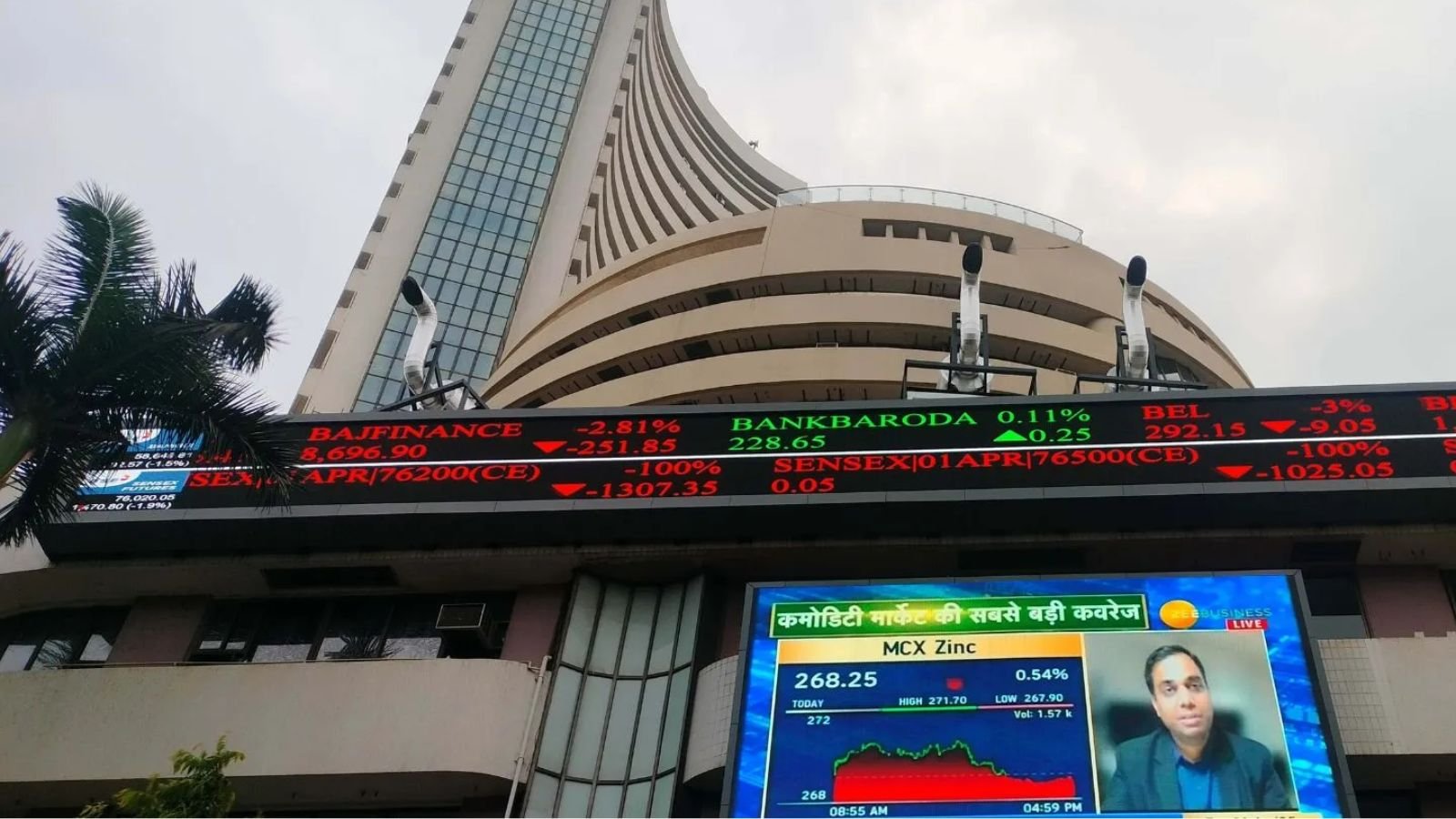India’s stock market is the top gainer in the world in the last one month after global markets reeled under the US President Donald Trump’s move to slap hefty tariffs on countries and later paused the proposal. India’s Sensex and Nifty recouped the losses and rallied 5.9 per cent in the last one month even as Dow Jones plunged 5.19 per cent and major Asian markets fell by up to 12.57 per cent during the period.
The benchmark Sensex which had plunged 4.75 per cent to a low of 73,137.90 between April 2 and 7, has erased the losses and bounced back by 5.34 per cent since April 7. On April 17, the index jumped 1.96 per cent to 78,553.20. Global market fluctuations have been influenced by Trump’s tariff proposals and subsequent pause, but India’s resilient economy has helped its stock market stand out.
VK Vijayakumar, chief investment strategist, Geojit Investments, said India’s recent outperformance is striking. “We are the only large market which has erased all losses incurred after April 2nd has closed above the pre-April 2nd level,” he said.
How major global indices performed since April 2
Although Sensex and Nifty more than recovered all the losses after Trump paused the 26 per cent tariff hike on India by three months, investors are on the edge due to uncertainty around the uncertain US plans and the trade war going on between the US and China.
Taiwan’s key index lost 12.57 per cent in the last one month, Hong Kong by 11.39 per cent, Japan’s Nikkei by 9.16 per cent and China’s Shanghai composite by 4.26 per cent. In Europe, Germany is down by 8.40 per cent and London FTSE by 5.09 per cent in the last one month.

According to analysts, India which is a domestic consumption driven economy will be one of the least impacted by the tariff crisis. The market is discounting the possibility of a bilateral trade agreement between US and India within a few months. “The US regards India as among the four allies (UK, Japan, South Korea and India) with whom the US will strike trade deals first. If this happens, India will benefit out of the ongoing trade war between US and China,” they said.
Domestic consumption stocks drive resurgence
In India, domestic consumption driven stocks in financials, telecom, aviation, cement and sections of autos are hitting 52-week highs and some are setting new records. “This trend will continue. FIIs have turned buyers in India since the prospects of US and China are the worst in this crisis. FIIs are likely to continue buying high quality large caps in domestic consumption sectors,” Vijayakumar said.
Story continues below this ad
Ajit Mishra, senior VP, research, Religare Broking, said investor sentiment remains positive, supported by strong domestic fundamentals and the absence of any major global concerns. “With the Nifty now hovering around its previous swing high near 23,800, focus will shift to the earnings announcements from heavyweights,” Mishra said.
How India’ conciliatory approach helps
Global equity markets witnessed sharp volatility amid uncertainty surrounding global tariff actions in the last seven trading sessions. The escalating US-China trade war has further positioned India as an attractive alternative for global manufacturing, with India maintaining a conciliatory approach and working toward a provisional trade agreement with the US.
India, with a 26 per cent duty proposed earlier, is actively negotiating a trade deal aiming for $500 billion in bilateral trade by 2030. “Sectors such as electronics and gems and jewellery are expected to face significant headwinds due to the increased import duties, while the pharmaceutical industry appears relatively insulated due to exemptions,” said Manish Goel, founder and MD at Equentis.
“The overall impact on India’s trade balance with the US is projected to be modest. Economists suggest the direct impact on India’s GDP growth will be limited to about 0.5 per cent to 1.1 per cent. Consumers in the US are likely to face higher prices for imported goods, while India could see indirect inflationary pressures due to potential currency depreciation,” he said.
Story continues below this ad
Global markets are now eyeing US-Japan tariff talks, anticipating some forthcoming negotiations. “This holds crucial as it paves a way for further negotiations with other major trading partner of the US. Separately, US Fed Chair raised flags of unemployment and inflation deflecting from Fed’s goals in the near term on account of ongoing tariff turmoil. This again led to some repricing of risks,” Bank of Baroda said in a report.








